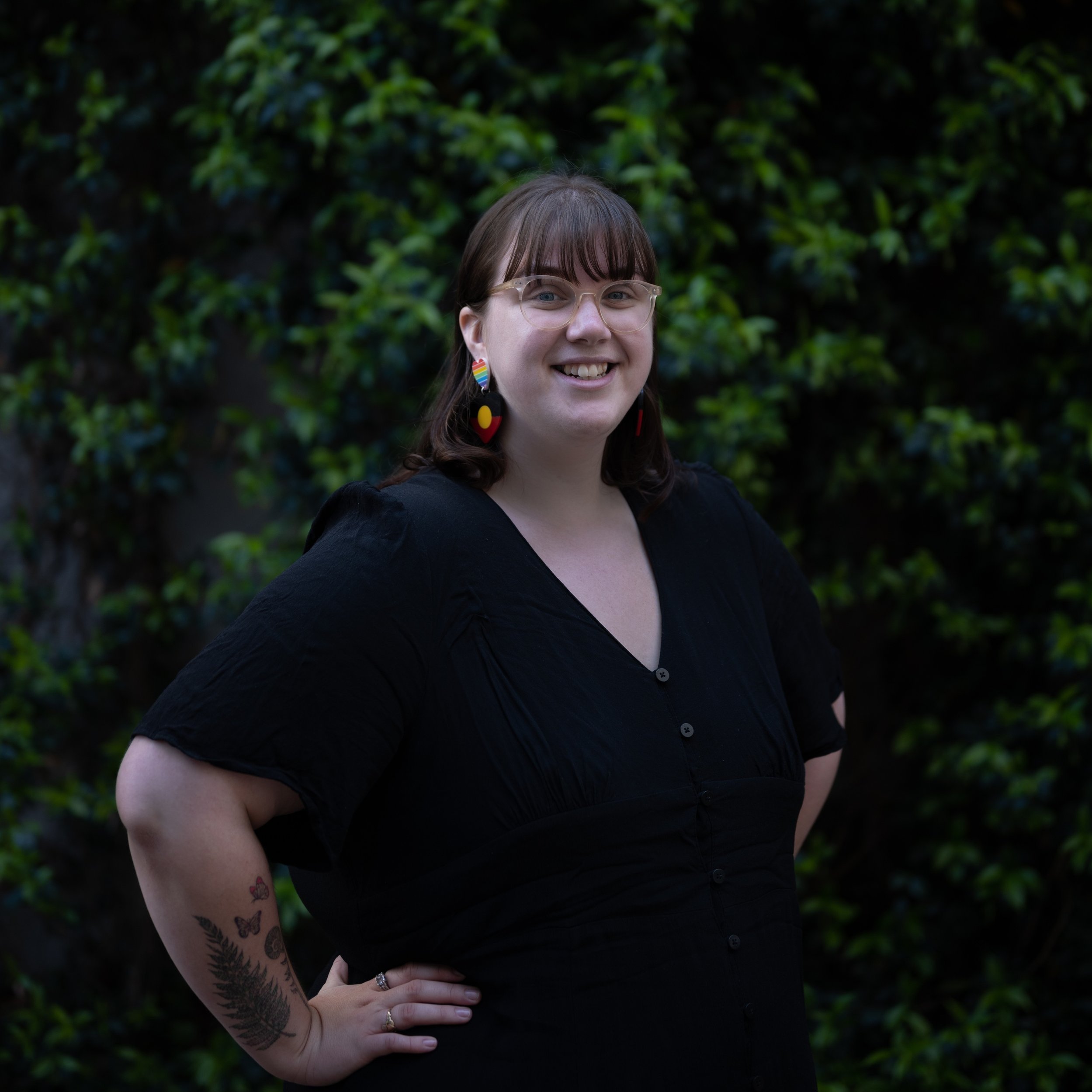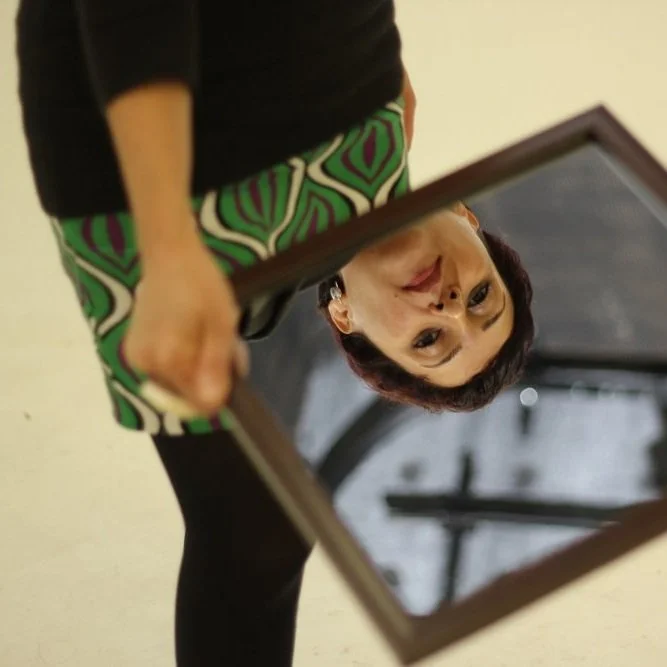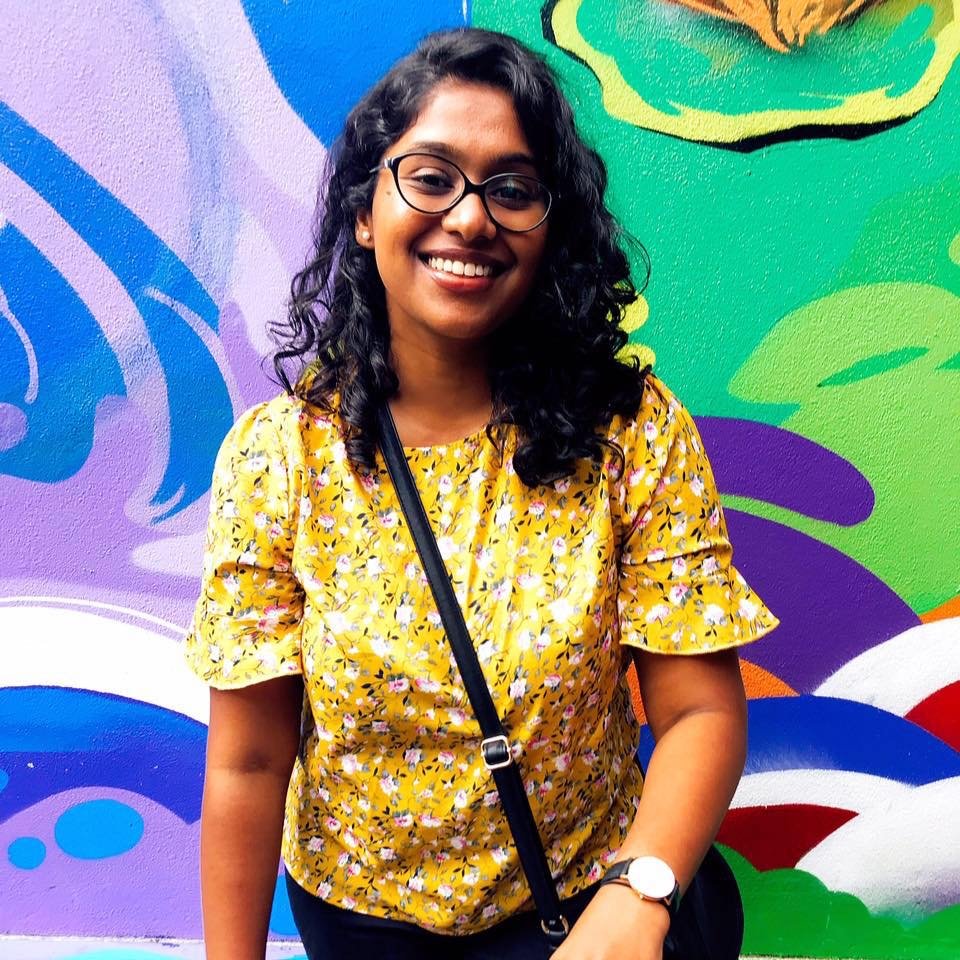HEALTHCARE & MARGINALISATION
The COVID-19 global pandemic and recent conversations on reproductive rights made one thing clear: we don't all have equal access to healthcare. In this community seminar, experts and activists discuss barriers to healthcare. We hope you will join Vanamali Hermans, Moji Khakbaz, and Jaya Kinhal in their discussion of racial and ethnic discrimination, prejudice against one's gender identity, and ablism as systemic obstacles to healthcare equity.
Find Mali @malihermans on most social media platforms.
Vanamali Hermans (she/they)
Mali Hermans (she/they) is a disabled and neurodivergent Koori and European woman living in Meanjin/Brisbane. Mali is a community organiser, worker, writer and socialist deeply invested in disability justice and abolitionist work.
Moji (Mozhdeh) Khakbaz (she/they)
I completed my bachelor’s degree in fine arts in Iran and every semester I learned about different practices and different skills and this assisted me in learning more about myself and discovering who I am as a person. I have a Graduation Diploma of Interactive and Visual Design and a Master of Arts (Research) from QUT. Feminism and Identity in the Work of Contemporary Iranian Female Artists focuses on the role of female artists using digital mediums to influence the social, political and environmental life of women. This exegesis presents a discussion on the intersection between three theoretical areas of artistic practice; feminism, cross-cultural practice and digital image making. Of particular concern to this study is the growing role of female artists in challenging the social status quo.
As An Iranian/Australian woman am able to identify my values, my views on social issues and how I want to engage with the world around me by arts. I used my artworks to express my point of views about women’s right and human rights. I believe that the creative art can provide space for raising concerns about different aspect of life in a way that is not confronting to others but engaging those affected in questioning the situation and challenging that. This is more effective in social setting that democracy is invisible.
I’m one of the Bilingual Health Educators at True Relationships and Reproductive Health (True). Our team is delivering health education sessions for communities to improve immigrant and refugee women’s access to culturally and linguistically appropriate women’s health education.
Jaya Kinhal (She/her)
My name is Jaya and I love science and healthcare! I've completed a Bachelor of Science and Master of Public Health and have worked in academic/clinical research, medical device industry, and public health not-for-profit organisations. After a few years of this, I decided to change careers and went back to university and obtained my Bachelor of Nursing. I currently work as a perioperative registered nurse across three specialties (anaesthetics, post-anaesthetic care, and scrub/scout nursing) in the operating theatres at Mater. So far in my career, I have had some very interesting experiences as a Woman of Colour in STEM. I'm particularly passionate about clinical research, health systems, health inequities, social determinants of health, culturally safe care, and improving health literacy and patient outcomes (particularly for CALD/refugee communities). Outside of my job, I love gardening, cooking, roller skating, skincare, and hiking!




